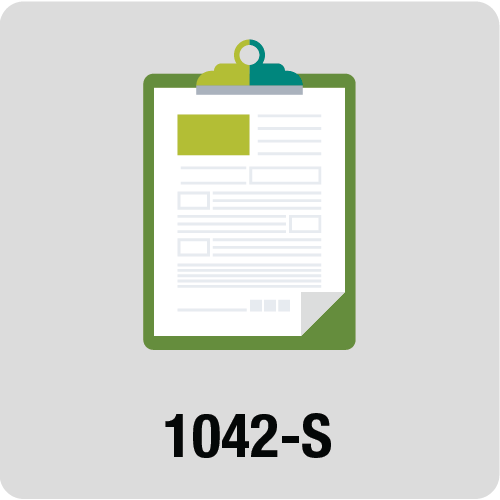The information on this page is relevant to resident aliens. Nonresident aliens should visit our information page for nonresident aliens.
One crucial step in understanding U.S. tax obligations is understanding which forms you will need and the deadlines to submit documents and file your taxes.
This page provides a high-level overview of the documents you’ll want to maintain, the forms you’ll need to file with the IRS and the deadlines for taking action. For more detailed information, see our International Tax Guide for Resident Aliens. If you’re unsure of your tax residency status, visit the Resident Alien Basics and Nonresident Alien Basics pages to learn more.
Timeline for receiving and filing your documents
| January | Receive W-2 |
| February | Receive 1042-S (if applicable) |
| Make sure you have received Forms W-2 and 1042-S (if you are expecting one) by Feb. 20 | |
| April | File federal and state income tax return forms (i.e. 1040, DR 0104) by April 15. |
| July | Contact the International Tax Office by mid-July if you suspect you may have had a change in your tax residency status. |
| December | In early December the International Tax Office will send applicable tax treaty renewal forms to those who have claimed a tax treaty benefit in the past and who will continue to be eligible to benefit from a tax treaty in the coming year. |
Tax forms you’ll receive from CU
There are two important tax documents you may receive from CU — Form 1042-S and/or Form W-2.
Taxable wages are reported on Form W-2.
For resident aliens, treaty-exempt wages are most commonly reported on Form 1042-S.
Form W-2 is sent in late January, and Form 1042-S is sent in mid-February.
They W-2 reports all wages paid by the university along with the type and amount of taxes already deducted from those wages. To learn more about the W-2, including an interactive graphic that explains each field on the form, visit the W-2 info page.
The 1042-S form reports all treaty-eligible compensation paid to you during the calendar year. If you receive treaty-eligible income from more than one source, you may receive multiple Forms 1042-S.
Tax forms you’ll need to submit
Resident aliens are required to file income tax returns with both the federal taxing authority and the state taxing authority for each state in which income was earned, unless it is a state with no income tax. Taxing agencies by state can be found here.
IRS Form 1040
IRS Form 1040 is the standard income tax return form in the U.S. and must be filed annually. This filing may include supplemental forms — Schedules 1 through 6 — as appliable depending on your individual circumstances.
Do not file Form 1040NR, as that form is designated for nonresident aliens.
Form DR 0104
Colorado Form DR 0104 is the standard income tax return form for the State of Colorado and must be filed annually.
Get help filing your taxes
The International Tax Guide for Resident Aliens includes an overview of the tax filing process, but we understand that filing can be a complicated task. Your best bet is to take advantage of expert tax preparation help.
While, the International Tax Office cannot directly help you file or provide any personal tax advice, we do have a collection of reliable resources that can answer your questions and help you file your tax returns. You have several options among tax preparation software platforms, and you can search among the IRS’s Free File database for filing software that will allow some individuals to prepare and file their taxes for free.
Additionally, the IRS’s Volunteer Income Tax Assistance (VITA) program offers free basic preparation services through for those who qualify based on income, disability or limited English fluency.
All filers should look over the IRS’s information pages on






